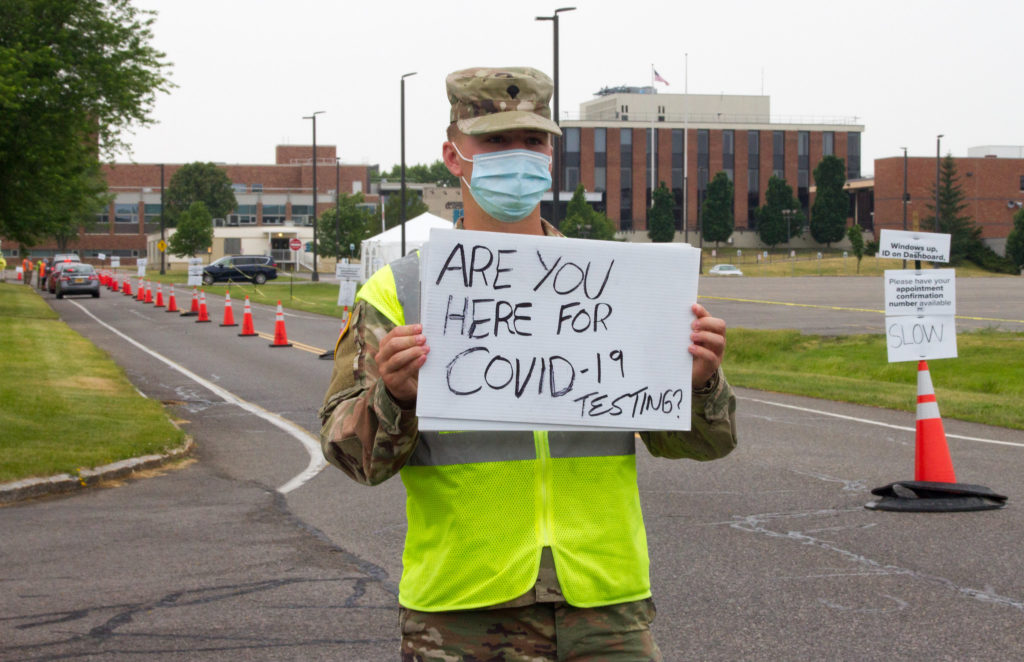Diane’s farewell message
After 52 years at WAMU, Diane Rehm says goodbye.

A lack of reliable testing has hampered U.S. efforts to contain the coronavirus from the beginning. Last month, a member of the U.S. Army staffed a drive-thru Covid-19 test site at in Rochester, NY.
Nearly 3.4 million people have tested positive for the coronavirus in the United States. The death toll tops 135,000.
Now, with infection rates surging, states that had started to reopen their economies are shutting down again. Schools that had planned to return to in-person instruction are going virtual.
Laurie Garrett is a Pulitzer prize-winning author and pandemic expert. Back in 1994, her book, “The Coming Plague,” warned of the consequences of newly emerging diseases. And she says the U.S. response to the pandemic is “a textbook for how to fail.”
Diane talks to Garrett about what happened, and what, if anything, can be done about it.
After 52 years at WAMU, Diane Rehm says goodbye.
Diane takes the mic one last time at WAMU. She talks to Susan Page of USA Today about Trump’s first hundred days – and what they say about the next hundred.
Maryland Congressman Jamie Raskin was first elected to the House in 2016, just as Donald Trump ascended to the presidency for the first time. Since then, few Democrats have worked as…
Can the courts act as a check on the Trump administration’s power? CNN chief Supreme Court analyst Joan Biskupic on how the clash over deportations is testing the judiciary.